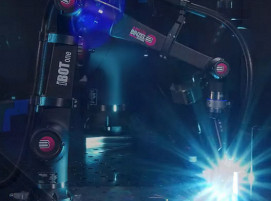
Skilled Labour in Germany
In October 2022, the Federal Government presented a new strategy for securing the supply of skilled workers (Fachkräftestrategie): It forms the basis for all planned policies and new regulations concerning skilled labour in Germany. The strategy, which was developed by multiple ministries headed by the Federal Ministry of Labour and Social Affairs, establishes five concrete fields of action.
Up-to-date training
With the vocational training guarantee, every young person who does not have any vocational qualification yet will be able to get vocational training that leads to full qualifications, preferably with an in-company programme. The already existing, integrated services of the Federal Employment Agency, the job centres and youth employment agencies (Jugendberufsagenturen) are improved and expanded. These services include both initial steps such as career counselling and practical career orientation. It also includes concrete placement in training and support for training. Additional financial support will be provided for those seeking vocational training away from home due to a lack of training offers in their region.
Targeted advanced training
The use of digital technologies, climate change and demographic trends are significantly transforming the labour market. In the future, the need for professional reorientation and changing jobs or even sectors will continue to grow. There are already extensive support services available for advanced vocational training. These have been significantly expanded and made more flexible in recent years through the Act which secures the right for professionals to develop their skills (Qualifizierungschancengesetz) and the Work of Tomorrow Act (Arbeit-von-morgen-Gesetz). The Citizen's Benefit Act (Bürgergeld-Gesetz), aimed at the group of long term unemployed persons (of whom appr. two thirds lack formal qualifications), provides for improvements and incentives to acquire education and training.
The planned Skills Act (Weiterbildungsgesetz) aims to further improve support for advanced education for both employees and companies in the future. This also includes the introduction of a skills development benefit (Qualifizierungsgeld), which will be paid as a compensation benefit for employees whose jobs are threatened by structural change, but for whom continuing education can secure employment with the same company.
Increasing job potential and gainful employment
The employment rate has risen significantly in Germany over the last two decades, especially among women, older people, people with a migration background and people with severe disabilities. To raise the rate even further, improved (legal) framework conditions are needed in addition to attractive working conditions and opportunities for further training and career advancement. Around six million people have benefited from the increase of the general statutory minimum wage to 12 Euros on October 1, 2022, especially women and workers in Eastern Germany. The goal is to ensure an adequate wage level primarily through collective agreements. On average, about 20 per cent fewer women are in paid employment than men. The causes for the disparity should be addressed and incentives and framework conditions to continue to reduce wage inequality between women and men, improve work-life balance, and promote the recognition of care work need to be established.
Improving quality of work and changing the work culture
Having good quality work, safe and healthy working conditions and an employee-oriented work culture are central to attracting and retaining skilled workers. Primarily the companies are responsible for these aspects. The Federal Ministry of Labour and Social Affairs has been supporting these efforts since 2002 within the framework of the New Quality of Work Initiative (INQA). The initiative is supported by social partners, chambers of trade and commerce, the states, municipal-level leading organisations, the Federal Employment Agency and the Federal Institute for Occupational Safety and Health.
INQA is the platform for knowledge transfer for best practice in Germany, especially for small and medium-sized enterprises (SMEs) and their employees. The initiative gets ideas from companies' practical experience and transfers new methods and knowledge about best practice into companies and organisations. One source is the INQA spaces for experimentation, where solutions for SMEs are tested to create and maintain good working conditions and an employee-oriented work culture even in a world of work that has undergone transformation.
Modern immigration
Changes to the Skilled Immigration Act (Fachkräfteeinwanderungsgesetz) will allow skilled workers to be employed in certain professions without qualifications recognised in Germany. This will apply to those with professional experience, a foreign vocational qualification or university degree and an employment contract with a sufficiently high salary.
The recognition procedure will also be simplified. Within the framework of recognition partnerships, suitable companies are able to hire people with foreign qualifications and then go through the recognition procedure within three years of taking up employment.
(Source: BMWK Press Release)






